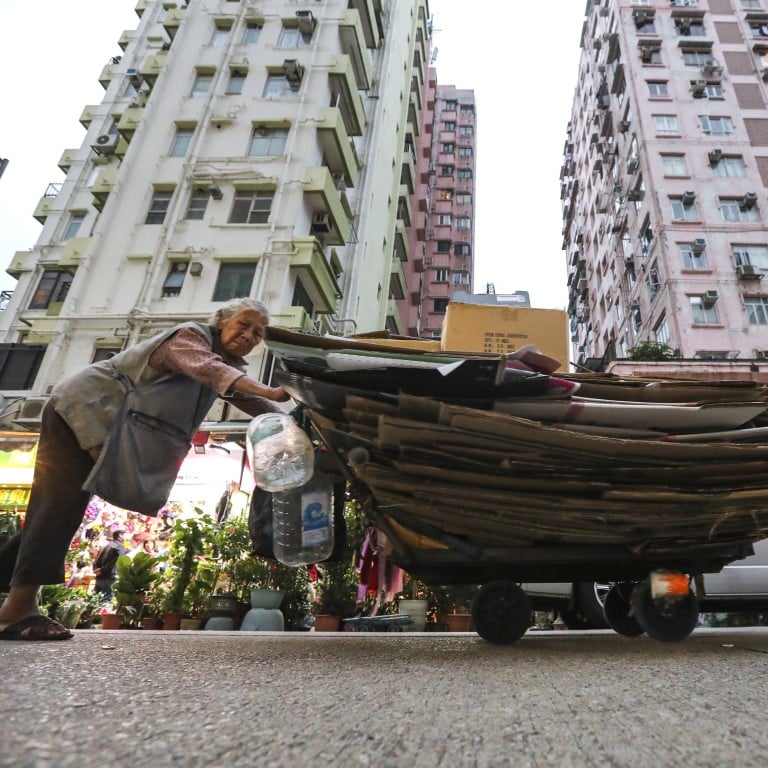
Hong Kong’s welfare failures are a damning indictment of the government and the international community
- The government’s woefully inadequate welfare package highlights its failure to implement Basic Law Article 145 to improve people’s livelihoods. The apathy in the business and international communities is shameful. Hongkongers deserve better
What are these proposals? Lower the age threshold for the elderly to enjoy reduced public transport fares, cash allowances for up to three months for low-income workers who lose their jobs or are unemployed, housing subsidies for people waiting for a public flat for more than three years, an increase in statutory public holidays to benefit blue-collar workers, and subsidies for protest-hit business sectors.
That article states: “On the basis of the previous social welfare system, the Government of the Hong Kong Special Administrative Region shall, on its own, formulate policies on the development and improvement of this system in the light of the economic conditions and social needs.”
Hong Kong is one of the world’s richest business centres. It can fully fund these services, but fails to do so. No one I met in Hong Kong during a recent trip to give talks and meet business leaders had heard of the book. I surmise no one in Hong Kong’s government has read it either.
The international community exhibits zero leadership in challenging Hong Kong’s government to implement Article 145. I ask businesspeople whether they would provide that leadership. The response is apathetic and self-focused. They explain to me instead how their firms prepare for the future, given the protests. Plan A is to do nothing. Plan B is to maintain or reduce their presence in Hong Kong but grow elsewhere.
In talks and conversations I remind people: “We are in China; Hong Kong is a special administrative region of China.” They often nod in agreement, but I sense they do not really grasp the meaning. China’s government views Hong Kong as its window to global capital. It will never undermine that status, or let another country undermine it.
One of his most common points is that the Hong Kong government must improve people’s livelihoods – that is, fulfil Article 145. This comports with the frequent criticism China’s leaders levy against Hong Kong’s government – its failure to improve social conditions.
Luo’s experience in Shanxi must give him pause when he observes the Hong Kong government’s totally inadequate response to providing better housing. If he were chief executive, one imagines, tens of thousands of housing units would be built quickly.
The Hong Kong government’s failure to improve livelihoods and the international community’s apathy are both shameful. Hongkongers deserve better.
The government’s failure to implement Article 145 borders on the immoral. When will the international community move from its conflicted self-focus to promote Hongkongers’ welfare and defend the city as China’s window to global capital?
David R. Meyer is a senior lecturer in management at the Olin Business School at Washington University in St. Louis, Missouri, US. He has published widely on Hong Kong as a global financial centre. The opinions expressed in this article are solely the author’s

